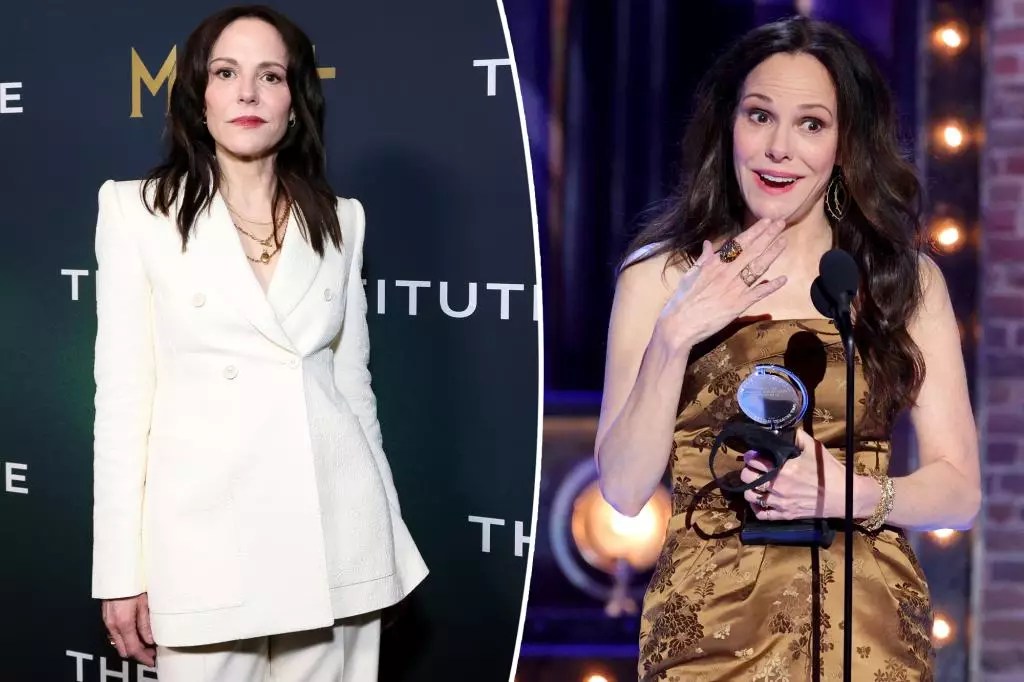In today’s digital age, where every detail of a celebrity’s life is scrutinized and immortalized online, Mary-Louise Parker stands apart with her conscious decision to avoid her own Wikipedia page. Her aversion to obsession over personal fame reveals a profound understanding of the pitfalls that come with constant self-examination. Parker’s stance suggests that immersing oneself in the mythology of one’s public persona can distort reality, breeding unnecessary self-doubt and distraction from authentic self-awareness. Her insight hints at an important truth: true fulfillment comes from within, not from external validation or curated histories. By resisting the temptation to indulge in her achievements through a digital lens, Parker demonstrates a rare humility—prioritizing mental well-being over superficial accolades.
Celebrating a Career Built on Depth and Diversity
Despite her reluctance to explore her biography online, Parker’s professional accomplishments speak volumes. Her illustrious career spans multiple mediums—stage, film, and television—each role underscoring her versatility and depth as an actress. With accolades including two Tony Awards, Golden Globes, and an Emmy, her talent is indisputable, yet she remains remarkably grounded. From portraying complex characters like Ruth Jamison and Dianne Sway in iconic films to embodying Nancy Botwin in “Weeds” and Harper Pitt in the acclaimed “Angels in America,” Parker has consistently challenged herself. Her work reflects an artist committed to portraying nuanced human experiences, rather than chasing fame for its own sake. Her recent projects, including “The Institute,” reveal her ongoing dedication to meaningful storytelling, often exploring moral ambiguities that mirror her own nuanced worldview.
Delving Into the Depths of Morality and Power
Parker’s latest role as Ms. Sigby in “The Institute” showcases her love for complex, morally ambiguous characters. Her portrayal of a seemingly unwavering authority figure who believes she’s acting for the greater good illustrates her capacity to embody roles that provoke vital questions about morality, power, and human nature. Parker reflects critically on these characters, acknowledging that individuals like Sigby often justify their actions as righteous, even when they cause harm. Her commentary underscores a core belief that the most dangerous individuals are often those who operate with a skewed sense of morality, convinced of their own righteousness. This ability to engage with morally intricate roles not only demonstrates her acting prowess but also reveals her insightful understanding of human psychology—a trait that elevates her work beyond mere entertainment to meaningful cultural commentary.
Authenticity in a Manufactured World
Parker’s perspective invites audiences to reconsider their relationship with fame and personal achievement. Her refusal to chase online metrics or public recognition aligns with her broader ethos of authenticity. In an era dominated by social media, her stance is a quiet revolt against superficiality, urging others to seek genuine fulfillment rather than fleeting validation. Her career exemplifies that true success arises from dedication, talent, and integrity—qualities that cannot be measured by digital footprints or awards alone. Parker’s approach serves as a reminder that staying true to oneself often requires resisting societal pressures and staying focused on what truly matters: authentic connection, personal growth, and meaningful work.


Leave a Reply